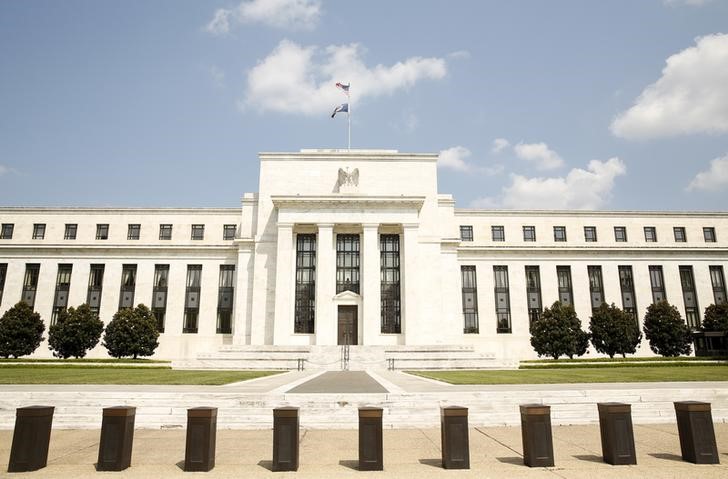By Lindsay Dunsmuir and Ann Saphir
WASHINGTON/MIDLAND, Texas (Reuters) - A U.S. Federal Reserve policymaker said on Tuesday that he will push for an interest rate hike in June or July and two others still see up to three rate increases this year, leaving the door open to a change in monetary policy relatively soon.
The U.S. central bank has held rates steady at a target range of 0.25 to 0.50 percent since moving from near zero in December. In its April policy statement it indicated it wants to have more confidence in the economy's overall health before raising rates again.
Data on consumer prices, housing starts and industrial production released earlier on Tuesday showed the U.S. economy re-accelerating into the second quarter.
Dallas Fed President Robert Kaplan told reporters in Texas that he will advocate for an interest-rate hike at the Fed's upcoming policy meetings. "Whether that's June or July, I can't say right now," Kaplan said.
Kaplan added that after that first 2016 rate hike he would prefer to pause to assess conditions, and while he would "hope" to continue to normalize rates thereafter, the pace of rate hikes will depend on economic data.
Despite the Fed standing pat in the first three meetings of the year, Atlanta Fed President Dennis Lockhart said at an event in Washington that he still assumes there will be two to three rate hikes between now and December, and that markets are more pessimistic on the U.S. economic outlook than he is.
"I think it certainly could be a meeting at which action could be taken," Lockhart said in reference to the Fed's next policy meeting on June 14-15, one of its remaining five meetings for this year.
Prices for contracts on federal funds futures suggest investors currently see only a 19 percent chance of an interest rate increase in June. They expect the first rate hike this year to come in September.
San Francisco Fed President John Williams, in a joint appearance with Lockhart in Washington, echoed the optimistic view of the economy. Two to three interest rate hikes this year "seems reasonable," he said, and there will be a lot more economic data to parse between now and mid-June.
"I think incoming data have actually been quite good and reassuring," Williams noted.

None of the three policymakers have a vote on this year's rate-setting committee but participate fully in deliberations.